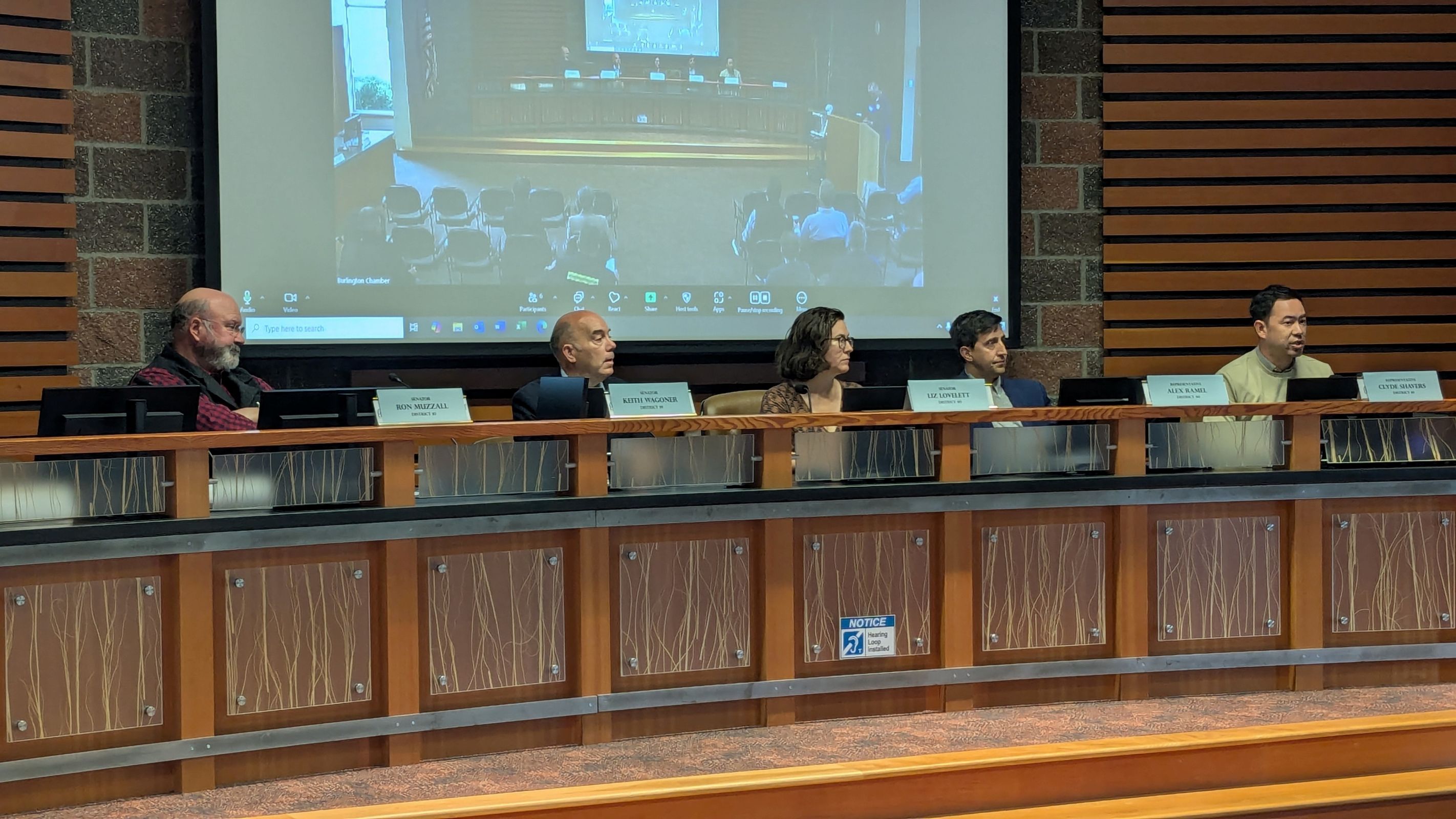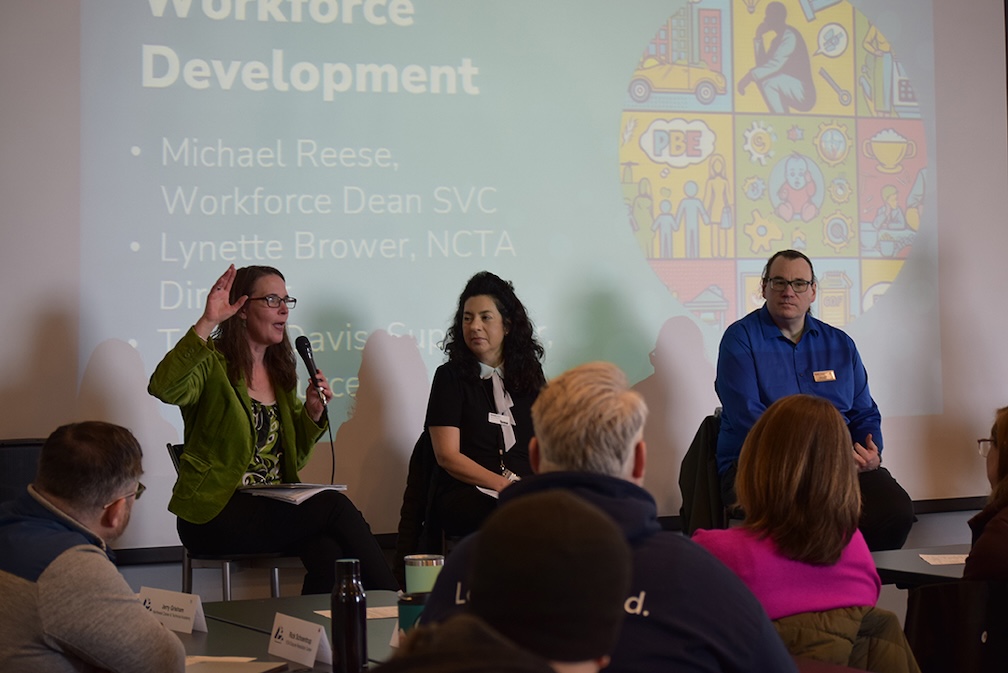Local legislative wrap up: Session full of tough choices

16 May 2025
News
Legislators from both sides of the aisle called the state legislature's recently concluded session "brutal" while speaking to community members gathered at the Skagit Chamber Alliance's Legislative Wrap Up on May 12. The reasons behind that characterization differed somewhat between Democrats and Republicans, but the frustration was real.
Both sides agreed the state's budget deficit – $16 billion over the next four years – is partially linked to the end of federal Covid relief funding. But how the state got to such a large deficit and how to get out of it differed widely between the two parties.
Attending the wrap up session in person were Sen. Ron Muzzall, Sen. Keith Wagoner, Sen. Liz Lovelett, Rep. Clyde Shavers and Rep. Alex Ramel; Rep. Dave Paul attended virtually.
“Let's start off by first acknowledging that we have a spending problem in the state of Washington,” Sen. Muzzall, R-Oak Harbor, said. “Our caucus came out with a budget in the very beginning that was a no-cuts, no-tax budget.”
“There is no math that says you can come up with $16 billion with no cuts and no new taxes. That absolutely does not work,” countered Rep. Ramel, D-Bellingham. “We had difficult choices in front of us this year.”
Republicans took aim at bills on rent control, Business and Operation taxes, and increased fees in several areas, stating each decision will ultimately have a negative effect on working Washingtonians.
“Rather than focus on one big hit to one sector, we spread that impact across a number of different places,” Rep. Ramel said. “Places where inflation hasn't kept up with the cost of fees, for example.”
Sen. Lovelett, D-Anacortes, took issue with her Republican colleagues’ budget proposal, stating it didn’t pay for collective bargaining with state employees nor adequately fund education, and it “swept” the entirety of the Climate Commitment Act.
“You know, we're talking a little bit divided here, but there's a lot of work that we do in Olympia, that's bipartisan,” Rep. Wagoner, R-Sedro-Woolley said. “You should know that then about 85% of the bills that get passed are unanimous or nearly unanimous.”
One example is a veterans’ service bill introduced by Rep. Shavers, D-Clinton, and supported by Wagoner. The bill expands the veterans service officer program started in 2019 to increase the number of veterans applying for and receiving federal benefits.
Another bill that received Gov. Ferguson’s signature calls for continued development of dual-credit CTE courses that allow high school students to receive college credit for select technical education classes. The bill was sponsored by Rep. Paul, D-Oak Harbor.
Many bills sponsored by local lawmakers this session did not make the cut this year, such as an electricity transmission bill sponsored by Rep. Ramel, which Ramel said he sponsored after hearing from Skagit County businesses that cited challenges with adequate energy supply. Ramel says he will reintroduce the bill next year.
More Topics






